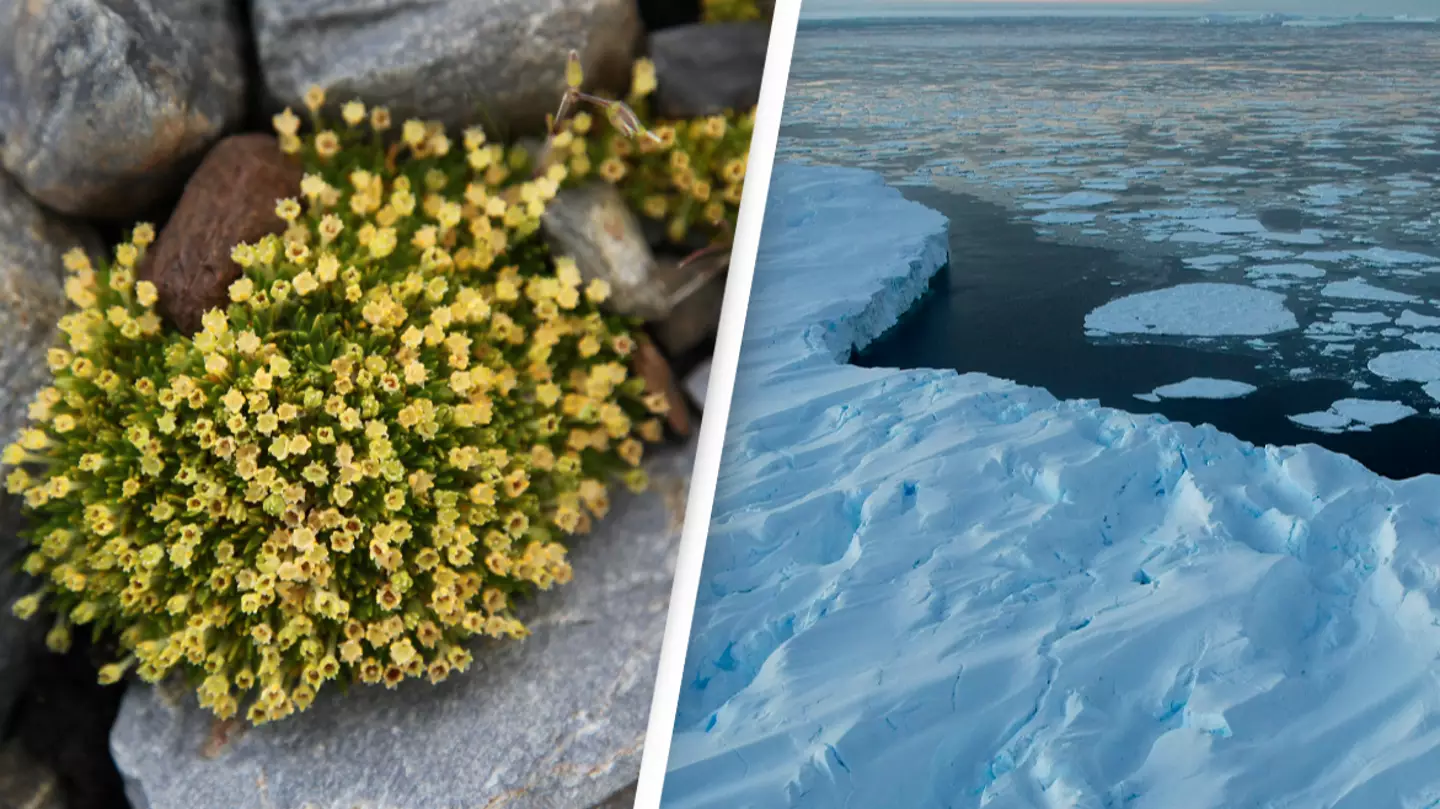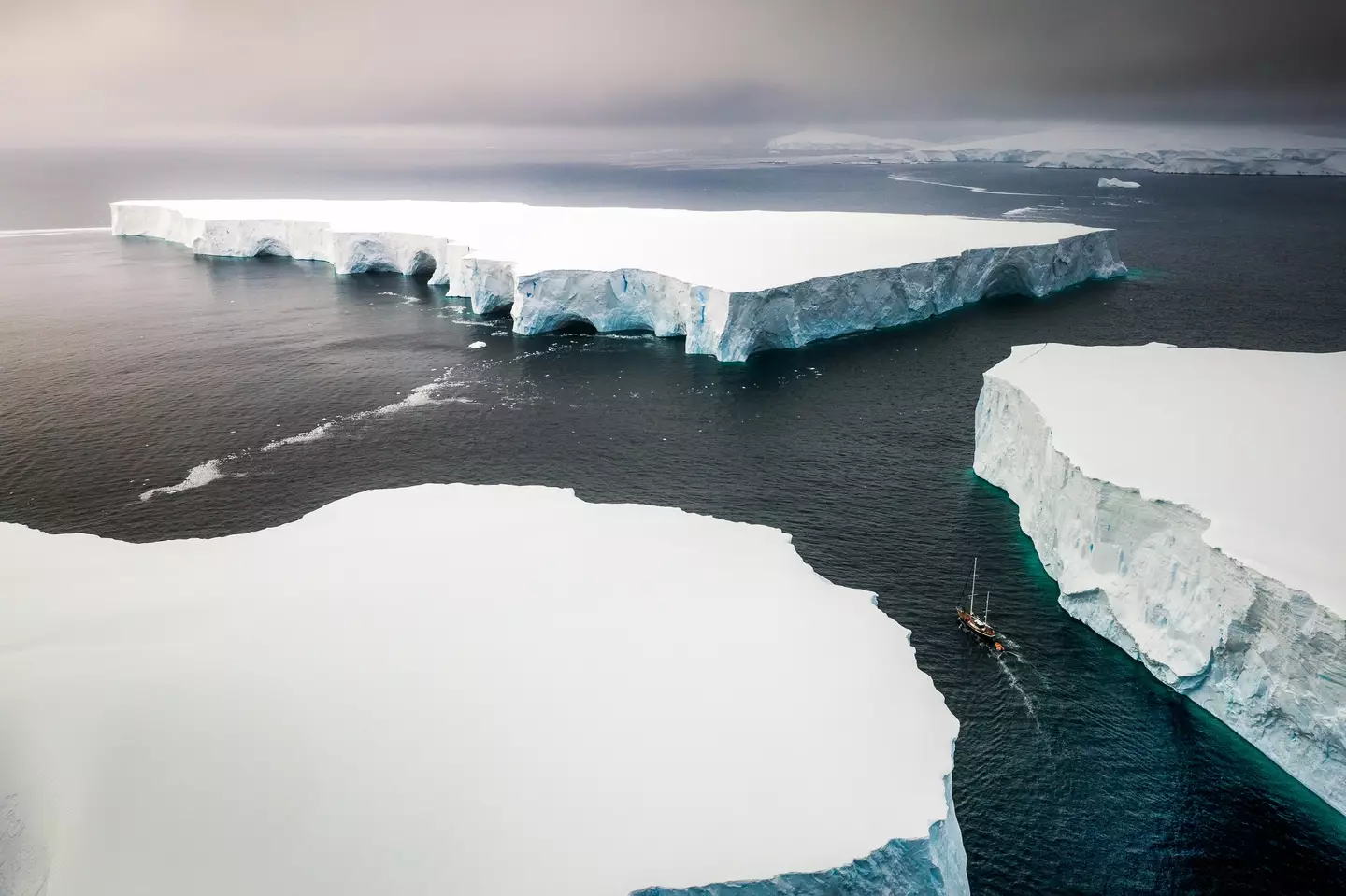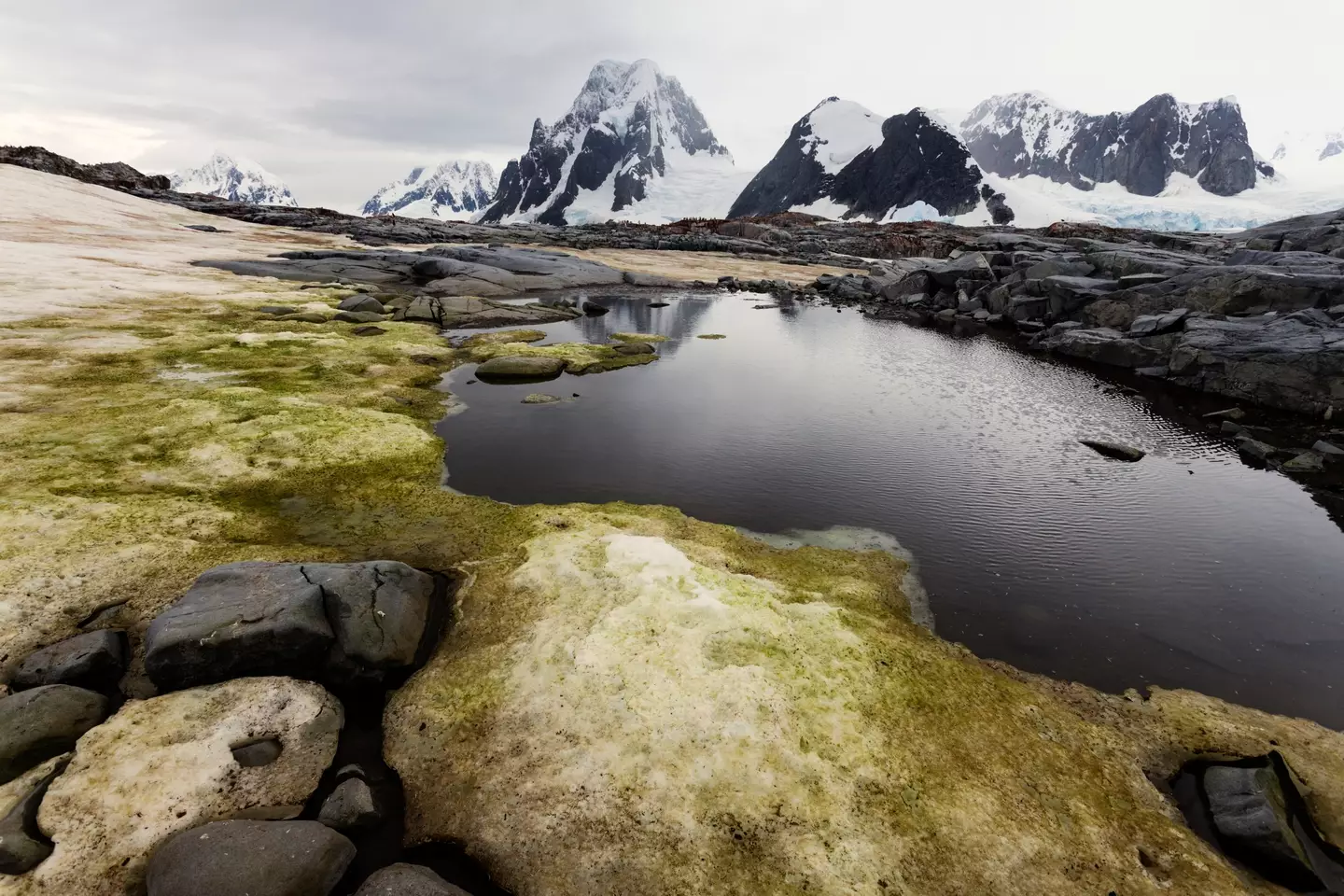
Bringing a pop of color and a promise of spring, flowers are usually a welcome sight - but not in Antarctica.
The freezing continent is home to just two species of flowering plants: Antarctic hair grass and Antarctic pearlwort.
As it's mostly covered in ice and snow, there previously hasn't been much space left for plants to grow - there are no trees or shrubs, and the plants that do exist are limited to the South Orkney Islands, the South Shetland Islands and along the western Antarctic Peninsula.

Advert
However, as global temperatures continue to rise and ice in Antarctica continues to melt, researchers have found that plants on the continent are growing more quickly.
Nicoletta Cannone, from the University of Insubria, Italy, and her colleagues measured the growth of Antarctica's two native plants at a number of sites on Signy Island, in the South Orkney Islands, from 2009 to 2019.
Comparing the results with surveys from the previous 50 years, they found that the sites had not only become more densely populated by the plants, but that they had also grown faster each year as the climate got warmer.
The results were staggering, with the Antarctic hair grass growing as much in 2009-2019 as it had in the entire 50 years from 1960 from 2009.
The Antarctic pearlwort moved even faster, growing five times more in the same periods.
Peter Convey, at the British Antarctic Survey, touched on the impact of accelerated growth as he told New Scientist: “The most novel feature of this is not the idea that something is growing faster. It’s that we think we’re starting to see what is almost like a step change or a tipping point.”

Matthew Davey, at the Scottish Association for Marine Science in Oban, UK, added: "Accelerated expansion is now clearly evident in the region”.
“This research gives us the first comprehensive data set showing how fast and how dense the plant community may expand,” he said.
The researchers acknowledged there could be a number of factors affecting the plant growth, including declining fur seal population, though the link to climate change is clear.
Increasing temperatures could also allow invasive species to colonise in the continent and outgrow the native plants, which could destabilise local ecosystems and biodiversity.
“If we extrapolate what we observed on Signy Island to other sites in Antarctica, a similar process can also occur,” Cannone explained. “This means that the Antarctic landscape and biodiversity could change rapidly.”
Topics: Science, Antarctica, World News